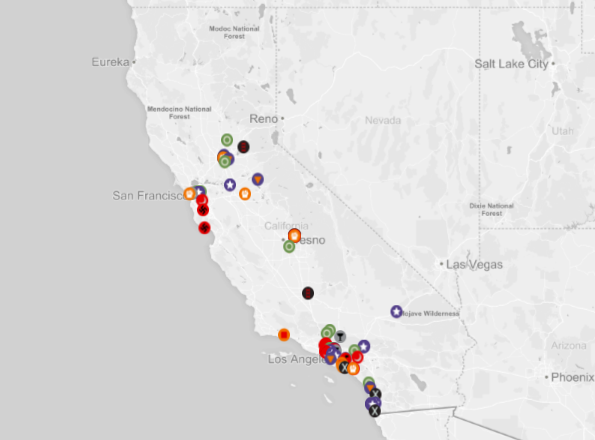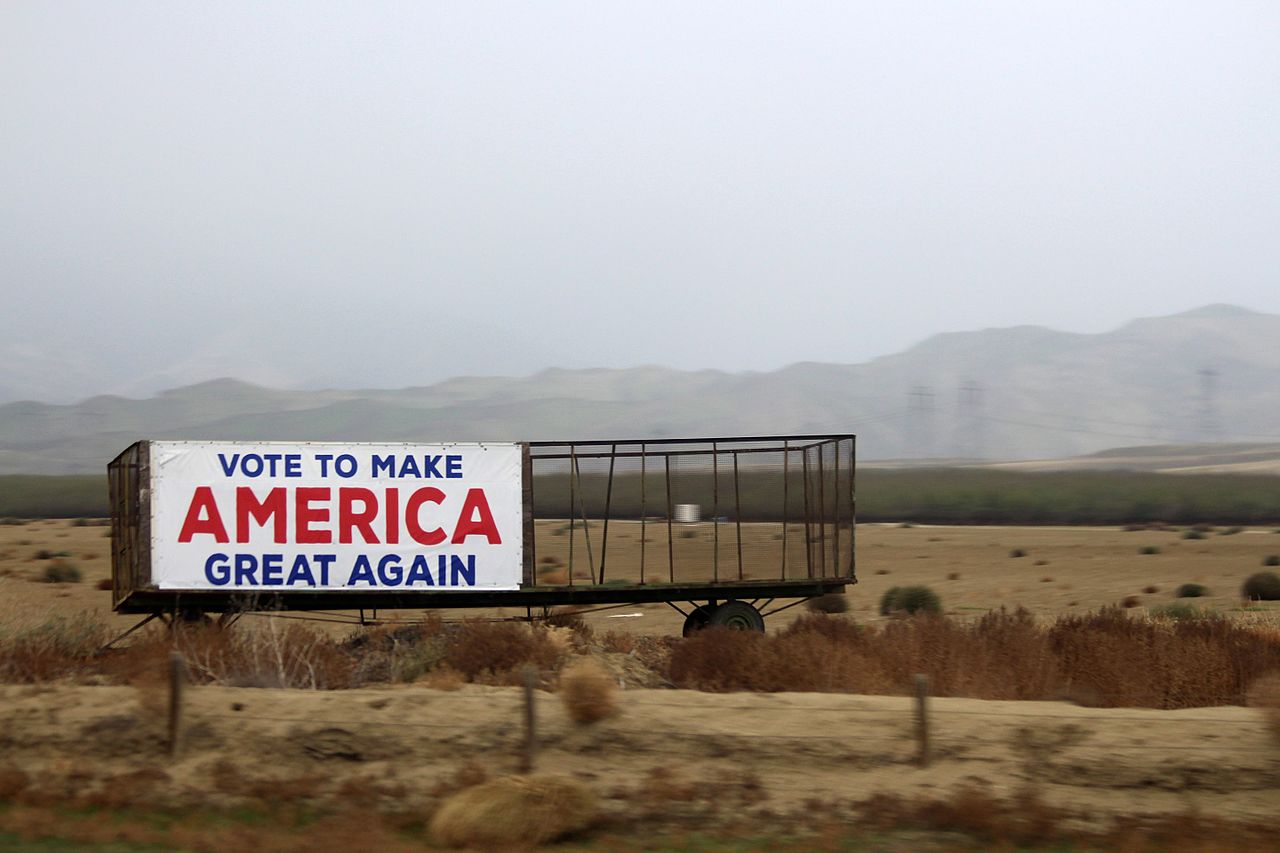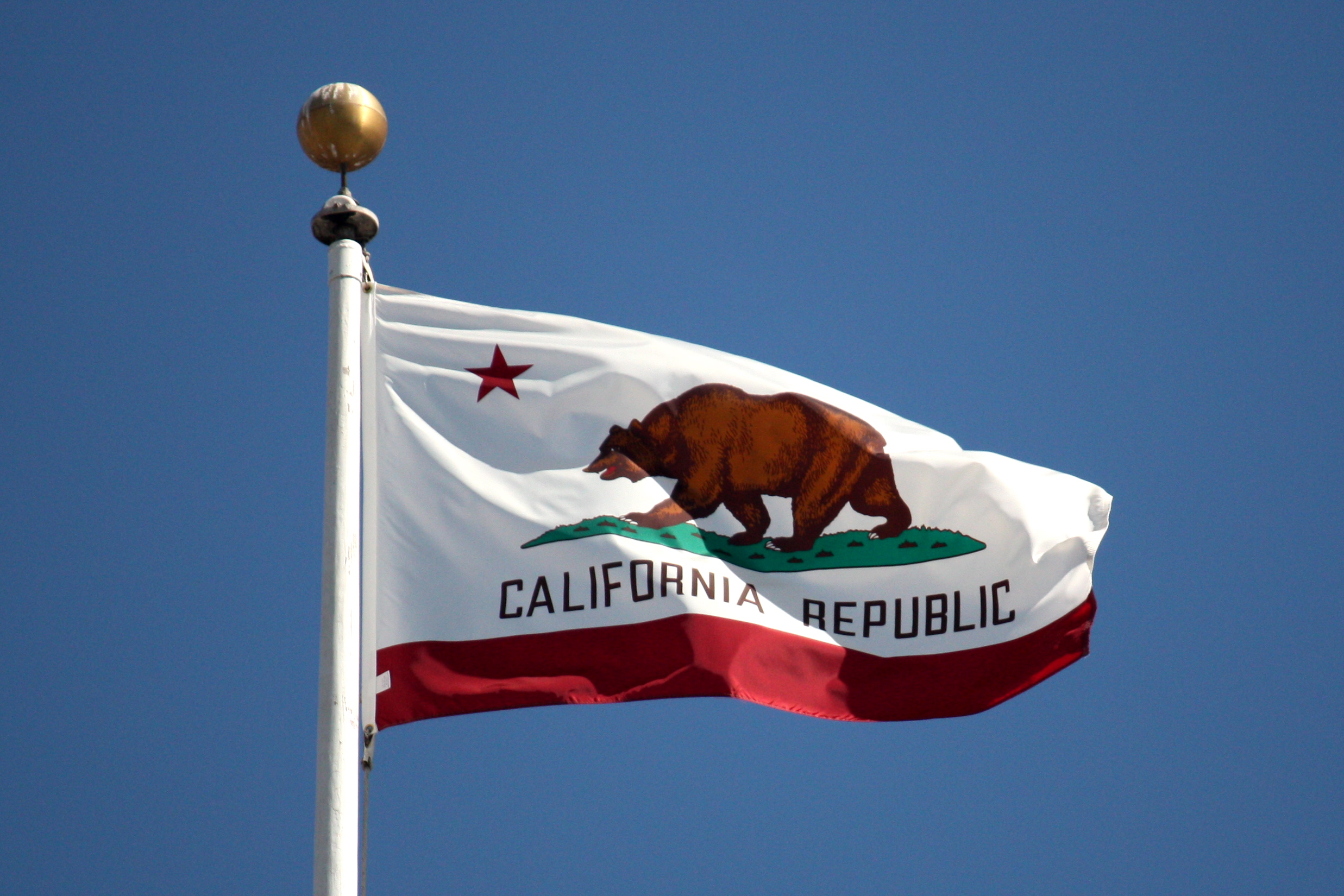Why Southern California is a Hotbed for Hate Groups

By:
What comes to mind when you think of California? Palm trees, oceans, beaches ... organized hate groups? While that last one might stick out like a sore thumb, it turns out the state is second only to Texas in the number of active hate groups, with the majority concentrated in liberal cities scattered along the coast.
 SPLC - splcenter.org
SPLC - splcenter.org
The hate groups range widely in who they target — with a mix of neo-Nazi, anti-Muslim, and Christian extremist organizations. In recent years, neo-Nazi groups have held rallies that have turned violent. But generally speaking, the groups serve as incubators seeking to expand their message beyond the local scene and normalize it on the national stage.
There are a few reasons for the unexpected trend in Southern California, according to experts in extremism.
The first accounts for cities such as Los Angeles, where a combination of low incomes and high diversity fuel prejudice. Tensions resulting from economic anxiety and racial bias can lead some to adopt an extremist "us versus them" mentality, whereby individuals of other races and ethnicities are viewed as competition, Mark Anthony Neal, who teaches African-American studies at Duke University, told NBC News.
"You're talking about communities of folks who are all struggling for the same amount of resources," Neal said. "They may blame another group for not having access to those resources."
 Quinn Dombrowski/Flickr - flickr.com
Quinn Dombrowski/Flickr - flickr.com
On the other hand, there are the seeming anomalies: Orange County, Huntington Beach, Newport Beach, Santa Monica, and Marina del Rey, for example. What accounts for the disproportionate prevalence of hate groups in these affluent, low-diversity cities — the kind of places that would appear far removed from that divisive competition for resources?
It has less to do with economic competition than it does cultural reactivity, according to Mark Potok, senior fellow at the Southern Poverty Law Center.
"The real reason for that is what you see when you look at the California map is that there's very little [active hate groups] in Central and Northern California — and I think the real reason for that is you don't see a lot of ethnic conflict up there," Potok said. "In Southern California, of course, you have an enormous Latino culture."
"There's a very large number of white retirees who come from essentially racially homogenous backgrounds who moved to Southern California and are shocked by what they find," he added. "They're not thinking about it. They're thinking they're just going to the land of sunshine and all that and what they find is a world that's in many cases dominated by Spanish and Spanish-language businesses and so on — and a whole lot of them react really poorly."
 Wikimedia Commons
Wikimedia Commons
Though more people are migrating out of California — mostly lower-income residents who are moving to states such as Texas and Nevada where the cost of living is cheaper — the populations that either move or retire to the Golden State are primarily from the Midwest, which is one of the least racially diverse regions in the country, according to The New York Times.
Brian Levin, director of the Center for the Study of Hate and Extremism at California State University, San Bernardino, said Potok's theory was compelling, but he cautioned that "it's a bit more nuanced."
"I don't think there's one hard and fast rule," he said. "What I can tell you is, there's a variety of things. First of all, what is going on with regard to demographic change and population density? I think that's important to look at. And has there been demographic change from a particular group that has been precipitous relative to the population change?"
 Wikimedia - wikimedia.org
Wikimedia - wikimedia.org
“California has had a long history with regard to hate groups,” Levin said. “We’ve had Nazi low-riders, racist skinheads, and indeed, the Aryan Brotherhood started in the California penitentiaries in 1964.” But Levin says it’s not especially surprising that the state has served as a hotbed for hate groups, “in part due to its diversity and its large population.”
That's not to say that diversity inevitably breeds hate groups, Levin cautioned. Several studies have found that exposure to diverse populations — even simply living on an ethnically diverse street — dramatically reduces racial prejudice among white people. What's more, hate groups do not develop as a spontaneous reaction to socioeconomic conflict; they're dependent on leadership, Levin said.
